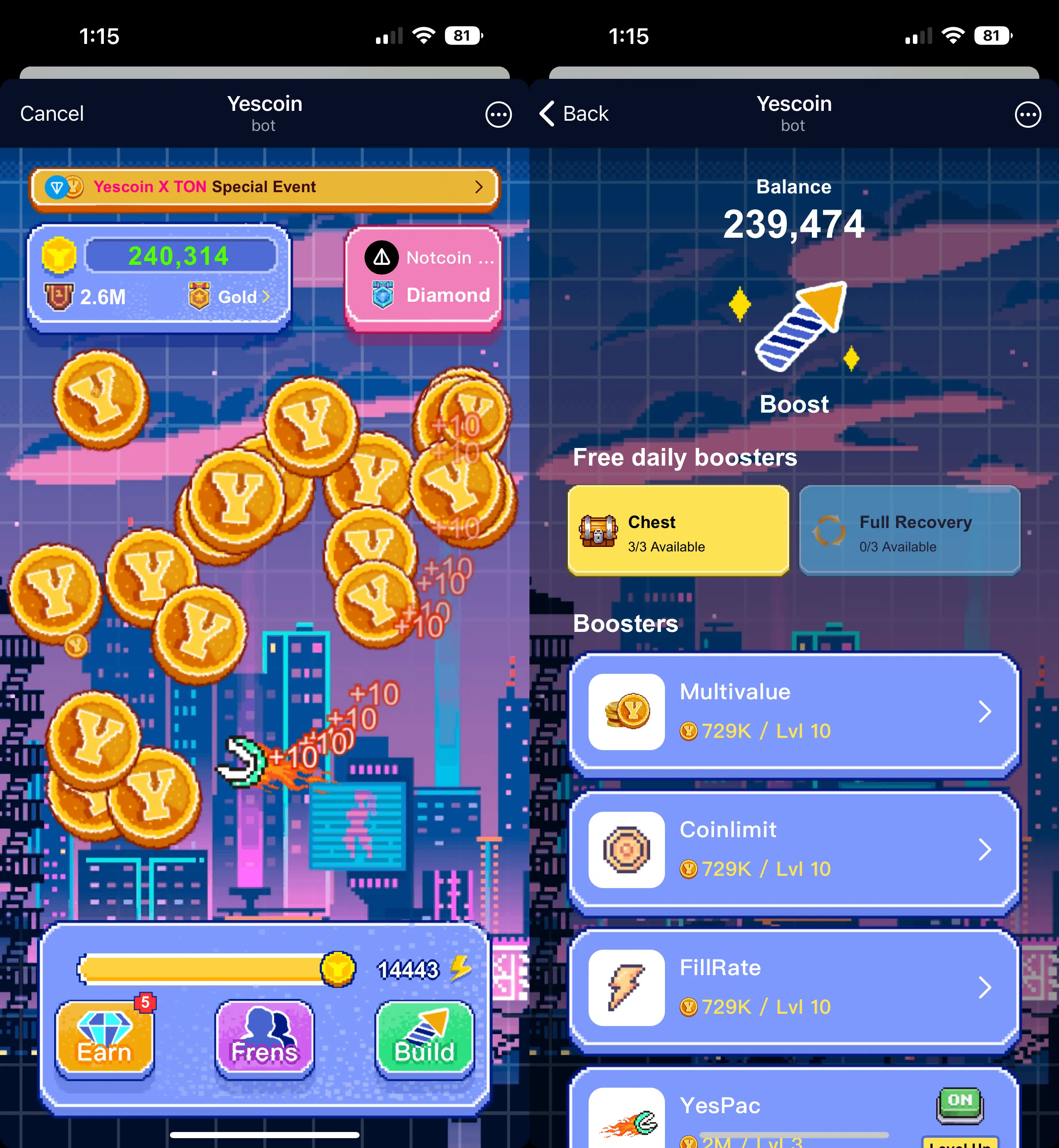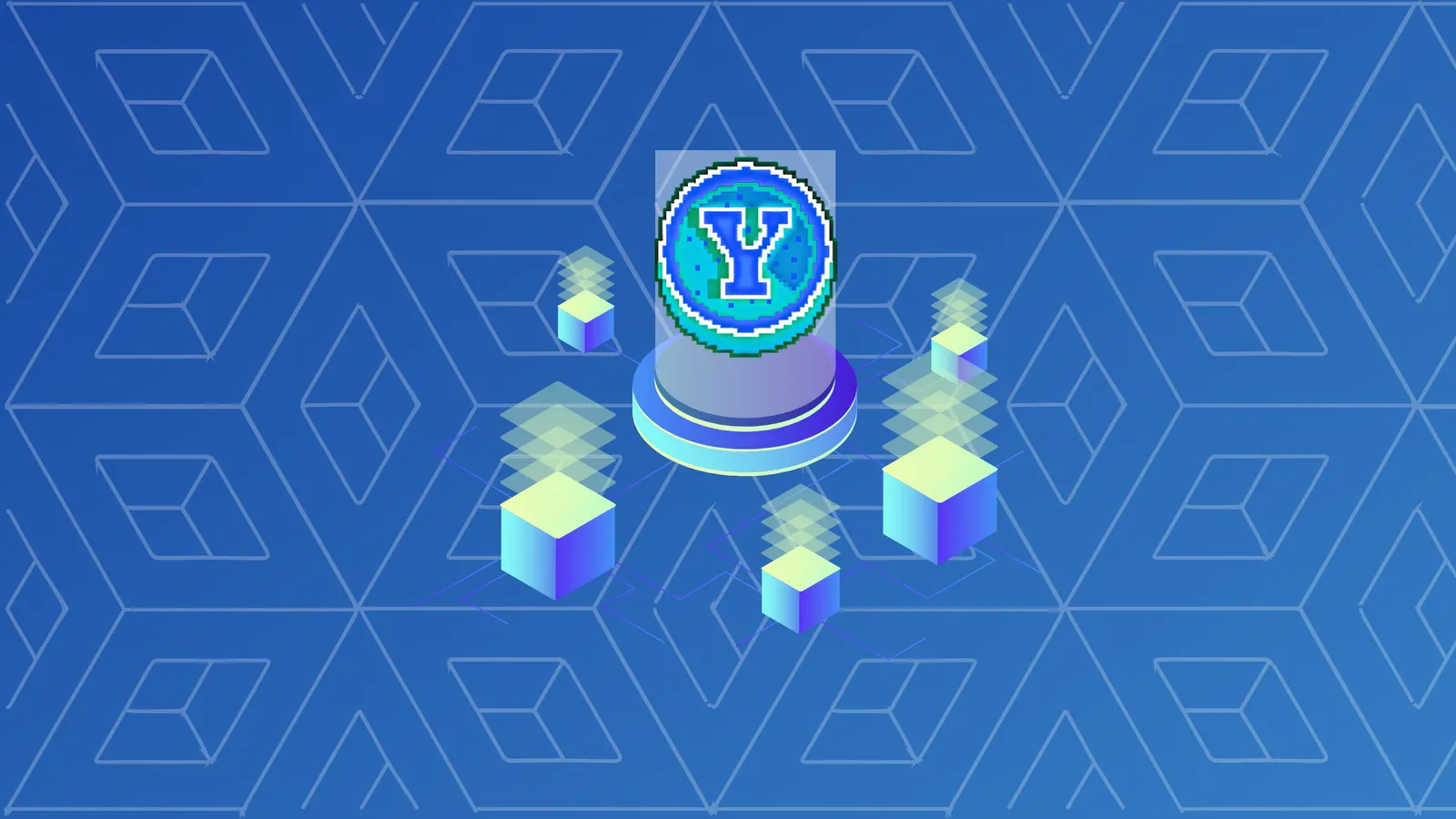Yescoin has emerged as one of the popular tap-to-earn games on Telegram—though technically speaking, it's not a tap-to-earn game.
While most of these games prompt users to tap the screen, this game instead asks you to swipe to collect digital coins.
Just a month after its launch in May 2024, Yescoin's creators claimed that over 18 million people from “nearly every country on earth” had played the game. Like other Telegram games, Yescoin has teased an airdrop, teaming up with layer-1 blockchain The Open Network (TON) and alluding to a potential token with the ticker YES.
Attracting 18 million gamers is no easy feat, especially for a relatively basic spin on the clicker genre. So how is it drawing in such a big crowd, what’s up with the potential token drop, and what are the game’s future plans? Here’s what you need to know.
What is Yescoin?
Yescoin takes a different approach than the common Telegram “clicker” premise by getting gamers to swipe across a screen full of gold tokens.
As you swipe, coins vanish and new ones appear. But as seen by a bar at the bottom of the screen, your energy slowly decreases. Once it hits zero, coins appear at a slower rate. You can either swipe every coin away as it appears, or leave the app alone for a while so your energy bar regenerates.
As with many clicker or tap-to-earn games, you can use the coins you earn to purchase ways to speed up your earnings. You can buy power-ups that increase the value of the coins, as well as speed up the rate that your energy bar regenerates.

The most valuable boost, however, is the YesPac—a roving creature that automatically collects coins for you, and offers powerful and unique bonuses at each upgrade level. For example, it can collect coins for you even when you’re offline and not actively playing.
When you first start the game, there are “onboarding” tasks including connecting your wallet or inviting a friend, and these grant big rewards. Taking advantage of these early is a great way to kickstart your game and help you buy key upgrades without waiting.
Yes, it's time to accelerate and reach new heights! 🚀
Yescoin, YesUniverse. #yescoin #yesuniverse pic.twitter.com/dqk2Ev3nQr
— Yescoin (@Yescoin_Fam) June 12, 2024
Token and airdrop
The developers have alluded to a potential YES token being released. In June 2024, the team confirmed a partnership with TON, the blockchain behind major Telegram crypto games like Notcoin and Hamster Kombat.
The team has referenced “upcoming airdrops,” stating that they are developing an onboarding system which will provide both on-chain and off-chain rewards.
Notcoin, the O.G. Telegram-based clicker game, set the blueprint for releasing a token in this genre. Those who played during the early-year “mining phase” were able to claim tokens based on how many in-game coins they’d earned. Soon after launching on TON, it became the biggest gaming airdrop of 2024, with a peak market cap well above $2 billion.
While Yescoin hasn’t explicitly confirmed its token plans at time of publication, the TON partnership and the game's core design certainly suggest that the game plans some form of airdrop to players.
Yes, we are growing fast. On #Telegram and @ton_blockchain.
Yes, let's swipe to Web3! 👀 https://t.co/dPyeJDdVp9
— Yescoin (@Yescoin_Fam) June 13, 2024
The future
Yescoin has had a successful start, but what does the future hold?
As Yescoin prides itself on its global reach, it has been actively working to launch its bot in different languages. As such, it will continue to launch bots in new languages, including Bengali.
It is also planning to launch a “Global Yescoin Ambassador Program,” which likely means teaming up with influencers and prominent community members to drive awareness. Alongside this, Yescoin is developing an onboarding system called the “Three-Stage Rocket Plan” which will tie into the aforementioned rewards and future airdrop plans.
Other plans include a series of “Summer Carnival-themed events,” and a new system to handle server pressures as the game's community grows. In turn, they’re also putting more effort into fighting scammers in the community—something every crypto project is plagued with.






